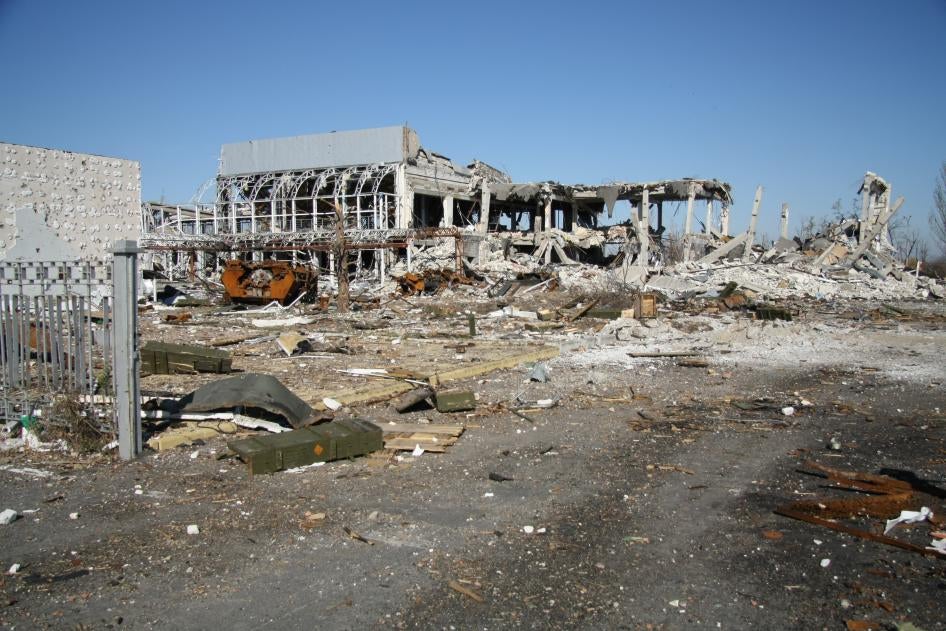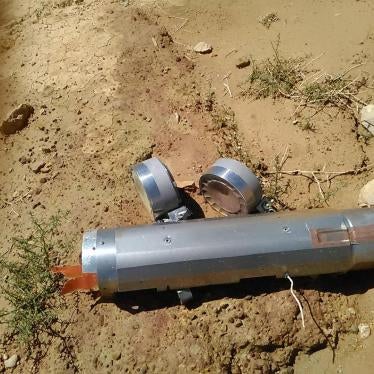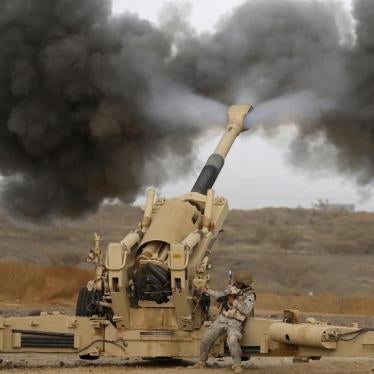“Urban areas have become death traps for thousands of civilians,” says a new report issued by the United Nations Secretary-General ahead of the first World Humanitarian Summit, which opens May 23, 2016, in Istanbul. The report describes the widespread use of explosive weapons in towns and cities as “the largest killer of civilians in conflict.” It follows an unprecedented plea by Ban Ki-moon and the president of the International Committee of the Red Cross for countries to “stop the use of heavy explosive weapons in populated areas.”
Over the past year, Human Rights Watch has
documented the unacceptably high civilian toll from the use of these weapons in countries such as Iraq, Libya, Syria, Sudan, and Yemen.
Explosive weapons with wide-area effects are especially problematic. These include heavy weapons such as large aircraft bombs and ground-launched artillery shells and mortar projectiles that cause death and damage over a wide area. They also include weapons that deliver multiple munitions or explosive warheads over a large area, such as Grads and other rockets from multiple launch rocket systems, and inherently inaccurate weapons such as “barrel bombs.”
A roundtable planned for the summit seeks
commitments to “uphold the norms that safeguard humanity.” It challenges “high-level leaders” to “prevent civilian harm resulting from the use of wide-area explosive weapons in populated areas” and to avoid using civilian infrastructure, such as schools, for military operations.
It’s obvious that all countries should join and adhere to international humanitarian law and human rights treaties and work to ensure compliance. Two types of explosive weapons – antipersonnel landmines and cluster munitions – have been prohibited outright because of their devastating impact on civilians. But states can take action that will ultimately protect more civilians from the harm caused by explosive weapons with wide-area effects. As Secretary-General Ban recommends, countries should not use these weapons in populated areas and should develop a political declaration that countries can join to reinforce the commitment.
As a
co-founder of the International Network on Explosive Weapons, Human Rights Watch stands ready to help countries develop a declaration as a step toward solving this predictable but avoidable humanitarian scourge.










